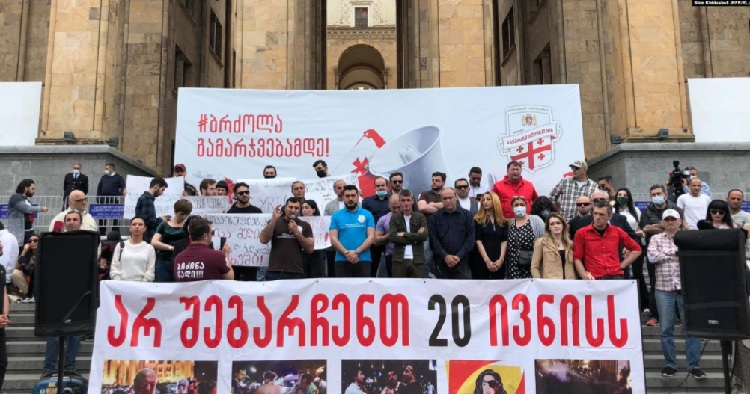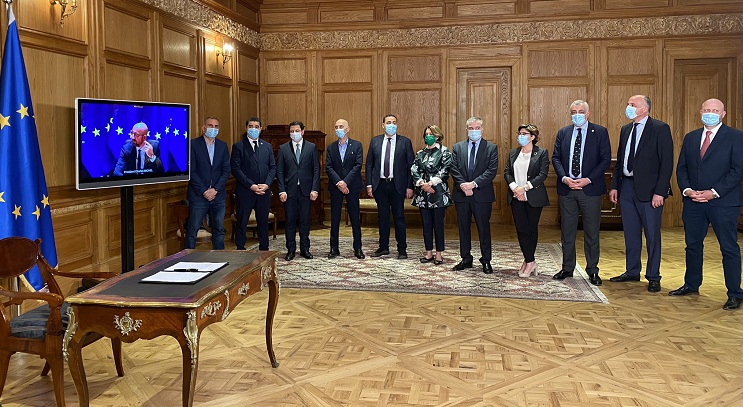EU, US ambassadors send joint open letter to activists injured during June 2019 anti-occupation protest

Kelly Degnan and Carl Hartzell have responded to civil activists who denounce the amnesty bill aimed to pardon ‘all violations and convictions stemming from the 19-21 June 2019 protests'. Photo: Giorgi Gakharia/Twitter archive
Ambassadors of the European Union and the United States Carl Hartzell and Kelly Degnan have sent a joint letter to the civil activists injured during June 20, 2019.
Hartzell and Degnan say that as Georgia’s partners, they have worked ‘to help end an extended political crisis emanating from the parliamentary elections 2020'.
The 19 April Agreement was a compromise brokered through a challenging mediation process and its contents are fully owned by Georgia’s political leaders. Under its first article, the agreement outlines a commitment to address cases of perceived politicized justice”, the joint statement reads.
Based on this commitment, it is up to the political parties represented in the Parliament to determine the exact modalities of these obligations, including an amnesty law that meets the intended objectives of the Agreement and respects Georgian laws, the European Convention of Human Rights, as well as all other pertinent international conventions to which Georgia is a member”, it also says.
The joint letter of the ambassadors is the response to the civil activists who have addressed Hartzell and Degnan on May 14 requesting to help the country ‘come out of the political crisis’.
The activists have also expressed their protest to the amnesty bill which aims to pardon ‘all violations and convictions stemming from the 19-21 June 2019 protests’, including the law enforcers who have violated their duties during the June anti-occupation protest.
Civil activist Irakli Pavlenishvili has shared the ambassadors' letter on Facebook:
In their response earlier today, Carl Hartzell and Kelly Degnan also say that ‘in such a polarised environment, an inclusive process in Parliament is needed to foster reforms that will prevent a recurrence of such tragic events and bring greater transparency and accountability’.
 Tweet
Tweet  Share
Share




